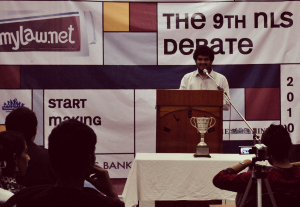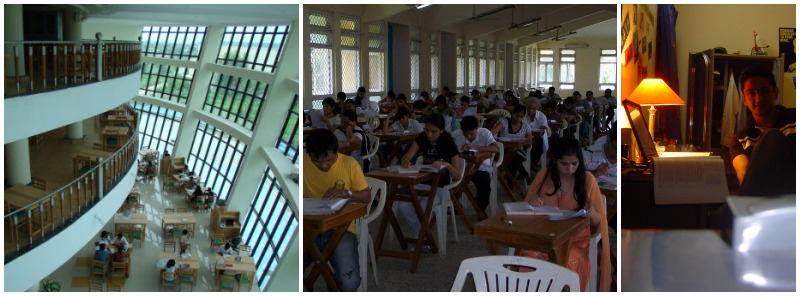 Julian Barnes put it very well, when he said “what else are you at that age [adolescence] but a creature part willing, part consenting, part being chosen?” The next five years in law school are going to define you in many ways, for this is when your hold on the creature you will be, increases greatly. There are no longer items in your room because someone else decided to keep them there. Your clothes will not be washed just because someone was kind enough to do that. You are now responsible for making decisions such as what to eat, how to keep a room, how to study, how to relax, and also where to move ahead in life. Indecision is not going to bode well for you either in law school or in the future.
Julian Barnes put it very well, when he said “what else are you at that age [adolescence] but a creature part willing, part consenting, part being chosen?” The next five years in law school are going to define you in many ways, for this is when your hold on the creature you will be, increases greatly. There are no longer items in your room because someone else decided to keep them there. Your clothes will not be washed just because someone was kind enough to do that. You are now responsible for making decisions such as what to eat, how to keep a room, how to study, how to relax, and also where to move ahead in life. Indecision is not going to bode well for you either in law school or in the future.
Oddly enough, I can reduce every facet of law school to how each individual responds to this change in their basic functioning. Some of us respond to the withdrawal of parental control by simply following the same practices, or by forming completely new routines be they healthy or not. Keeping rooms filthy and living out of suitcases, going days without a bath, wearing dirty clothes: all of this is not a cause of law school taking too much time, but rather simply being unable to take charge of life. These seem very inconsequential, so nobody really cares about such daily hassles, but if you look at the other end of the spectrum you’ll find the same things are repeated while making big decisions.
Everyone finds it convenient to imitate and follow the established norm rather than try to explore their options for themselves. We get drawn into a herd without thinking about how the decisions may affect us; everyone debates or moots or publishes or gets on journals, so we assume that we must as well, for

otherwise the race will be lost. But, where is the end of that race? Similarly, the amount people jabber might make you think that life after law school only consists of the firm-litigation-academia triumvirate. Ask them what they wish to pursue in any of these fields, and few will give you a convincing answer (this may help explain attrition rates in lawfirms, apart from other factors). The concern with the form of what life may follow has so completely overtaken the substance that we rarely stop to think about what really motivates us. It’s not the place but what you do there which makes it worthwhile. Try spending the time here figuring that out, but don’t beat yourself over it if you find no concrete answer five years down the line.
One of the truly wonderful things about law school integrating B.A. and LL.B. courses is exposing individuals to a wide array of subjects that allow them to find out what really makes them tick. Add to this a liberal environment as law school, and you honestly find yourselves in a unique place where nearly any option is open for you to consider. If law is really not your thing, you can seek inspiration from the many alumni who have branched off into unrelated fields. At NLS, one needn’t look further than Bhukkad and its founder Mr. Aruj Garg (batch of 2013). It may be hard, but don’t be afraid to take that risk.
(Abhinav Sekhri is a fifth year student at the National Law School of India University, Bangalore. All articles in this series are here.)








